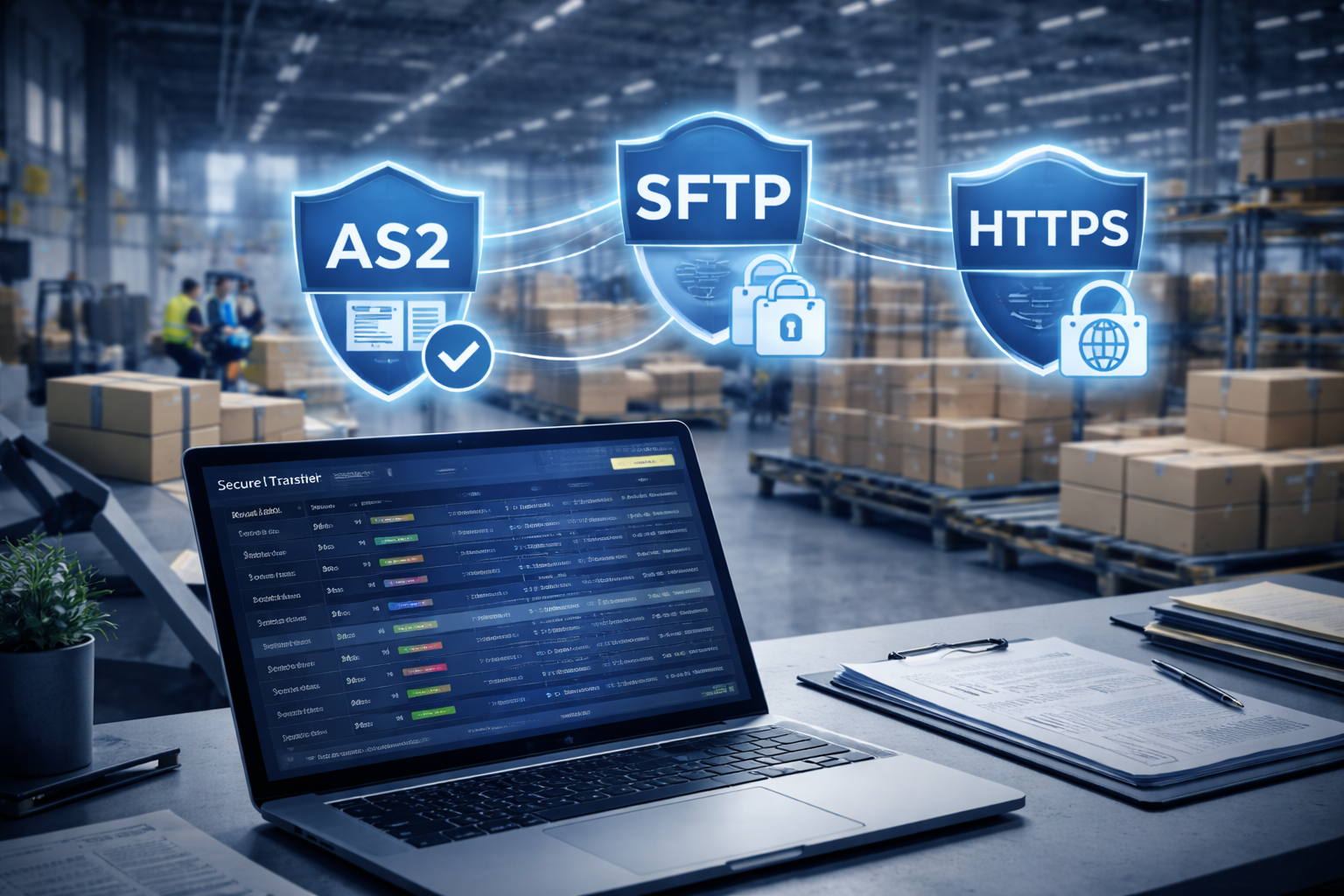
The agriculture supply chain is complex, yet it runs smoothly with the help of electronic data interchange (EDI).The industry encompasses all businesses that cultivate crops, raise animals, farm fish, and log wood, i.e., farms, hatcheries, orchards, greenhouses, ranches, and dairy farms.
The story begins with suppliers (seeds, fertilizers, machinery, etc.). Next are the producers, or farmers, who plant, grow and harvest the crops. Then the product heads to the processors, where it is inspected, weighed, cleaned, graded, packaged, and labeled. From there, it moves on to distributors, who manage the product's circulation to sellers and retailers, where it reaches the shelves for consumer purchase.Therefore, there are numerous steps before the food hits your dinner table, and most businesses use EDI to manage the process efficiently. Electronic data interchange shares documents in a 100% virtual, secure format between all parties. Communications include contracts, purchase orders and confirmations, order amendments, advance ship notices, movement notifications, goods receipts, invoices, payment remittances, and cancellations.Here are a few ways EDI technology can change the game in the agriculture supply chain.
Individuals, family partnerships, or family corporations operate nearly 98% of the two million farms in the United States. (Source: America's Diverse Family Farms: 2018 Edition.) These businesses have to contend with large corporate farms.However, EDI levels the playing field and provides everyone with the transparency needed to stay on course. Mom-and-pop operations can compete with large commercial farms and get their items into the big supermarkets with electronic data interchange.
Growers can benefit immensely from an EDI solution. The electronic format eliminates human errors — mistyped quantities, product numbers, prices, and more. These errors bring incredible headaches as producers scramble to make things right.
Agriculture is affected by many things that are out of the growers' control, such as pests, disease, drought, heavy rain, and unseasonable temperatures. While you can't stop a rainstorm, you can control your business's reaction by having a solid EDI solution ready to move the product efficiently. Hence, trading partners earn the most profit possible from a low production year.
Farming is highly seasonal, and businesses must be ready for the busy times. EDI allows its users to act and react quickly because you don't want to be asleep during peak periods!Missed opportunities mean You'll have to wait until next year, after all.
Major grocery retailers issue fees when products don't meet specific parameters. For example, if a shipment arrives outside its must-arrive-by date (MABD), the retailer will issue a chargeback through a deduction on the invoice. Stores place orders strategically (based on historical data) to stock shelves when they become empty. MABDs keep costs down, but a shipment that arrives before or after its preassigned window disrupts this model. Unfortunately, the supplier pays the price.EDI provides a layer of protection. Its advanced level of information at your fingertips empowers you to correct any delivery errors and other mistakes before it hurts the bottom line.For example, advanced ship notices (ASNs) notify trading partners of all orders' contents and delivery window. If the retailer doesn't receive that document, EDI alerts the distributor. The distributor can intervene to ensure the retailer is ready for the shipment and adjust if it looks like the delivery window will be missed.For more details about how EDI aids grocers, check out EDI, The Grocery Industry, and Lessons from the Pandemic.
If you're involved in the agriculture supply chain, do you have the right EDI partner? Don't be afraid to change course if it's not working out. Sometimes, the EDI integration isn't acceptable for your needs. We can help tailor the right solution for you, and we will ensure seamless integration.To find out how to get started, contact BOLD VAN by calling 844-265-3777 or emailing info@boldvan.com.

Learn how hybrid API + EDI integration supports Shopify, BigCommerce, and D2C growth without mailbox fees, mapping delays, or compliance risk.

Compare AS2, SFTP, and HTTPS for warehouse EDI. Learn which secure transmission protocol fits your compliance, performance, and operational needs.

Automate EDI directly into Dynamics 365 without long IT projects. Eliminate manual entry, reduce errors, and gain predictable pricing with BOLD VAN.